
Out of these Best Gardening Soil For Vegetables, loamy soil is the best soil for vegetable gardens as it promotes the growth of almost all types of vegetables.
Best Organic Garden Soil For Vegetables

There are a few things to think about while choosing the best organic garden soil for veggies. Here are some choices that are frequently suggested:
- Compost: In organic gardening, compost is frequently regarded as the foundation. It is nutrient-rich and enhances the fertility and structure of the soil. Compost can be created at home using food scraps, yard trash, and other organic materials, or it can be bought from garden supply stores.
- Potting mix: A premium organic potting mix designed especially for veggies can be a great option. These combinations frequently contain a sizable amount of organic materials including compost, peat moss, vermiculite, and perlite. Look for items with labels that say they are intended for vegetable growing.
- Manure-Based Soil: Manure-Based soil are usually used for mixing with compost. It acts as a additional soil for increasing the power of soil. These mixtures offer a healthy balance of organic materials and nutrients. Make sure the manure has been composted correctly to prevent contamination and too much nitrogen.
- Worm Castings: Earthworms make worm castings, sometimes referred to as vermicompost, which is a nutrient-rich organic amendment. They aid in enhancing the structure of the soil and offer a consistent flow of nutrients for plant growth. Worm castings can be added to the soil or used as a top dressing.
Many garden centers sell pre-packaged organic soil mixtures that are designed exclusively for growing veggies. To create a balanced and fertile soil, these mixtures typically include a combination of compost, peat moss, and other organic ingredients.
For your vegetable garden, it’s essential to select organic best
soil that is also free of commercial pesticides, herbicides, and genetically modified organisms (GMOs). Additionally, take into account the particular requirements of your veggies and adjust the soil’s composition as necessary.
Maintain in mind that building best soil is a continual process, and that organic matter, like compost, should be added frequently to replenish nutrients and maintain the best soil fertile.
Best Gardening Soil For Vegetables

There are majorly have 4 types of soil – sandy, silty, clayey, and loamy.
- Loam Soil: Loam soil is considered the ideal soil type for vegetable gardening. Its well distributed texture, which is a blend of sand, silt, and clay, promotes good drainage while holding onto moisture and nutrients.
- sandy Soil: Sandy soil is a kind of soil with a gritty texture made out of sand particles from weathered rocks. Sandy soil consists of relatively large particles when compared to other types of soil like loamy, silty, or clay soil.
- silty soil: Silty soil is slippery when wet, not grainy or rocky. The soil itself can be called silt if its silt content is greater than 80 percent. When deposits of silt are compressed and the grains are pressed together, rocks such as siltstone form. Silt is created when rock is eroded, or worn away, by water and ice.
- clayey soil: It is a type of soil that consists of a large number of clay particles and a very small amount of humus and silt. This soil is so compact that it cannot trap air. Vegetables like Broccoli, Brussel sprouts, and cabbage grow well in clayey soil.
Out of these, loamy soil is the best soil for vegetable gardens as it promotes the growth of almost all types of vegetables.
Best Things To Compost For Garden

Good things to compost include vegetable peelings, fruit waste, teabags, plant prunings and grass cuttings. These are fast to break down and provide important nitrogen as well as moisture. It’s also good to include things such as cardboard egg boxes, scrunched up paper and fallen leaves.
Peels, cores, and seeds of fruits and vegetables are included in the category of “Fruit And Vegetable Scraps.”
- Coffee grounds and filters: Coffee grounds are an excellent source of nitrogen and help to raise the compost’s general quality.
- Tea leaves and bags: Tea leaves enrich compost with nutrients, and natural material-made bags can also be composted.
- Eggshells: Crushed eggshells give the best soil a supply of calcium and help keep the pH levels in check.
- Yard waste: You can compost dry leaves, grass clippings, small twigs, and plant trimmings. To stop the spread of disease or weed issues, do not introduce infected plants or weeds that have gone to seed. Newspaper, cardboard, and paper without glossy coatings can all be composted, as well as torn up paper and cardboard. If they are divided into little pieces, they degrade more quickly.
- Nut shells: You can compost walnut, almond, and other similar nut shells, although it might take some time for them to entirely decompose.
- Plant-based kitchen waste: This includes vegetable and fruit peels, maize cobs, corn husks, and the tops of roots. Hay and straw can be added to compost piles, but because they are high in carbon, it is important to balance them with materials high in nitrogen.
- Wood ash: Untreated wood ash in moderate quantities can be added to the compost pile. Both potassium and a little pH increase resulting it to form the best soil.
Best Compost Soil For Garden

The Best Bagged Compost of 2023 are:
- Best Overall : Blue Ribbon Organics Compost.
Blue Ribbon Organics makes and sells premium compost. Compost, formed from food waste, yard waste, and other organic debris, is a nutrient-rich soil additive. It boosts soil fertility, plant development, and health.
- Best Value: Black Kow Organic Compost and Manure.
Black Kow is a prominent brand that makes organic compost and manure products. Their compost and manure are made from cow manure and other organic components.
- Best Odor-Free Manure Compost: Michigan Peat Garden Compost and Manure Blend.
A product called Michigan Peat Garden Compost and Manure Blend is intended to improve the fertility and quality of soil for gardening. The mixture is made by mixing organic compost with well-aged manure, and as a consequence, it is nutrient-rich and has several advantages for plants.
- Best Mushroom Compost: Organic Brands Mushroom Compost.
A well-known business that specializes in creating top-notch mushroom compost is called Organic Brands. A nutrient-rich substance produced as a byproduct of the mushroom cultivation process, mushroom compost is also referred to as mushroom soil or substrate. Mushroom spores are combined with a range of organic materials, including as straw, hay, chicken manure, gypsum, and agricultural waste, to create it.
- Best Compost for Vegetable Gardens: Soil Blend Super Compost with Myco.
Mushroom spores are combined with a range of organic materials, including as straw, hay, chicken manure, gypsum, and agricultural waste, to create it.
Best soil available in cheap price.
Mosser Lee ML1121 River Rock Soil Cover, 5 lb.
Best soil mix for indoor vegetation.
GROW!T GMC40l – 4mm-16mm Clay Pebbles, Brown, (40 Liter Bag)
Best Compost For House Plants

Types of house plant compost:
Cactus compost is alkaline and contains plenty of nutrients for healthy plants. Flower compost – a general purpose compost that is good for most plants. It’s a good all-round compost for indoor plants. Organic potting mix – a general purpose compost for potted plants. There are more soils which you should have information about.
A good compost for indoor plants must have the right nutrients, appropriate water retention, and adequate aeration for the roots. The following are some handy biodegradable items:
- Worm castings, often known as worm excrement, are a rich source of nutrients and beneficial bacteria that can support the growth and well-being of indoor plants. They also help the soil retain water and enhance soil structure.
- Green compost is created from plant-based waste products such used coffee grounds, grass clippings, and leftover veggies. Nitrogen, which is crucial for the growth of leaves, is abundant in green compost.
- Brown compost is made up of things like wood chips, straw, cardboard, and paper that has been shred. Carbon, which is essential for general plant growth, is provided by brown compost.
- Compost with improved aeration and space for the roots to expand and breathe can be made with composted bark or coir. The fact that coir is made from coconut husks is another advantage.
- To improve aeration and water retention, compost mixtures commonly contain non-organic elements like perlite or vermiculite. Vermiculite appears as minute brown or yellow flakes, while perlite appears as tiny white balls.
- Both bone meal and rock phosphate are sources of phosphorus, which is essential for the growth of flowers and fruits.
- Potassium, which is present in wood ash or phosphate fertilizers, aids in disease resistance and overall plant health.
After reading all this information, You can make your own best soil mix all the best once. Additionally, compost can be rather rich; for this reason, it’s usually a good idea to combine it with conventional potting soil rather of using it alone.
Additionally, composting at home is a great way to recycle kitchen trash and is good for the environment in addition to your indoor plants.
Best Soil For Home Garden

A best soil for gardening should generally include the following characteristics:
A best soil should be well-draining, preventing excess moisture that could cause root rot and other issues. Sandy loam soil is frequently advised due to its superior draining capabilities.
- Rich in nutrients: Plants will grow well on soil that is rich in nutrients and organic matter. Your soil’s nutritional profile can be improved by adding compost or well-rotted manure.
- pH-Balanced: The pH needs of various plants vary.The majority of vegetables and flowers like soil that is slightly acidic to neutral, with a pH range of 6.0 to 7.0. To assess the pH of your soil, perform a soil test. Then, use additions like lime or sulfur to make any necessary modifications.
- Friable and Loose: Soil that is loose and crumbly is easier for roots to penetrate and fosters the growth of strong roots. Compost or peat moss are examples of organic materials that can be added to soil to help with texture and structure.
- Moisture Retention: Although good soil drainage is crucial, soil also has to hold on to enough water to keep plants hydrated. Ideal soil is one that retains rainwater without becoming soggy. The addition of organic matter can improve the soil’s capacity to hold water.
- Weed-Free: Either start with weed-free soil or take steps to get rid of any weeds already there before planting. As Weed takes all the nutrients and the water from the plants bides them that is the reason why Weed expands so fast.




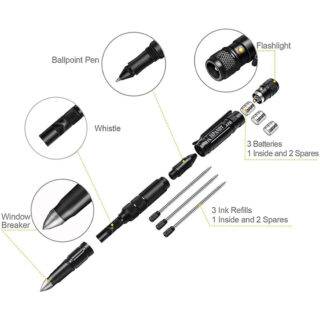
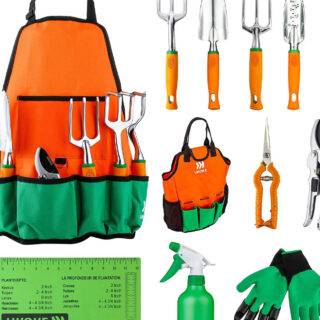

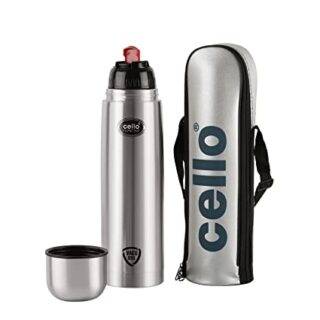
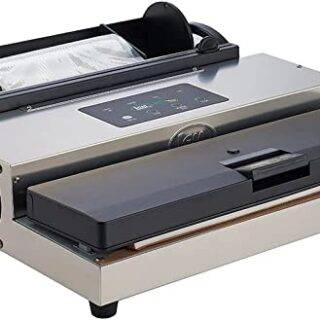
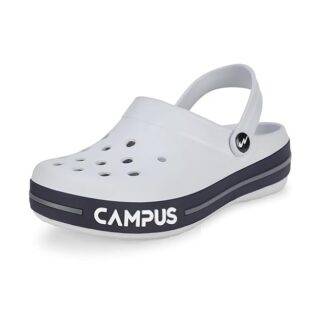
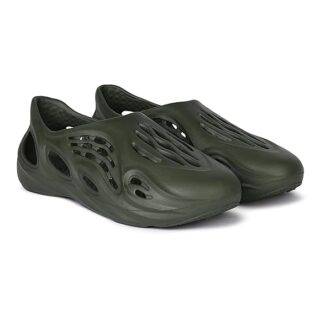



Leave a Reply